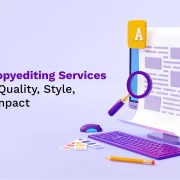Adaptive Learning Systems (also known as Intelligent Tutoring Systems – ITS) are technology-based educational tools that personalize the learning experience for each student. By continuously assessing a student’s knowledge and adapting the content, pace, and delivery method, these systems provide targeted instruction, remediation, and enrichment. This personalized approach optimizes learning outcomes, improves student engagement, and fosters a deeper understanding of the subject matter. Explore how Adaptive Learning Systems are revolutionizing education and corporate training.
What is Adaptive Learning Systems (aka Intelligent Tutoring Systems / ITS)?
Adaptive Learning Systems, also known as Intelligent Tutoring Systems (ITS), are technology-enhanced learning solutions designed to personalize the learning experience for each individual student. Unlike traditional, one-size-fits-all approaches, adaptive learning systems dynamically adjust the content, pace, and delivery method based on a student’s real-time performance, knowledge level, and learning style.
These systems leverage algorithms, data analytics, and AI to identify a student’s strengths and weaknesses. They then provide targeted instruction and feedback to address specific learning gaps. This can involve offering more challenging material to advanced learners, providing remedial support to struggling students, or adjusting the presentation format (e.g., videos, interactive exercises, text) to suit individual preferences.
Key features of adaptive learning systems often include:
- Personalized Learning Paths: Content sequences are tailored to individual needs.
- Real-time Assessment: Continuous monitoring of student performance to identify areas for improvement.
- Adaptive Content Delivery: Adjusting the difficulty and format of learning materials.
- Targeted Feedback: Providing specific and actionable feedback to guide student learning.
- Data-Driven Insights: Offering instructors data on student progress and areas where students struggle.
By providing a more engaging and effective learning experience, adaptive learning systems aim to improve student outcomes, increase knowledge retention, and foster a deeper understanding of the subject matter. They are increasingly used in various educational settings, from K-12 to higher education and corporate training.
Why are Adaptive Learning Systems (aka Intelligent Tutoring Systems / ITS) important?
Adaptive Learning Systems, also known as Intelligent Tutoring Systems (ITS), are revolutionizing education by offering personalized learning experiences tailored to individual student needs. Their importance stems from several key advantages:
Personalized Learning Paths: ITS analyze each student’s knowledge level, learning style, and pace, creating customized learning paths that address their specific strengths and weaknesses. This targeted approach maximizes learning efficiency and reduces frustration.
Improved Learning Outcomes: By focusing on individual needs, ITS lead to better understanding and retention of information. Students progress at their own speed, ensuring mastery of concepts before moving on.
Increased Engagement and Motivation: The personalized nature of ITS makes learning more engaging and relevant. Immediate feedback and targeted challenges keep students motivated and invested in their learning journey.
Data-Driven Insights for Educators: ITS provide valuable data on student performance, allowing educators to identify areas where students are struggling and adjust their teaching strategies accordingly. This data-driven approach enables more effective instruction and support.
Scalability and Accessibility: ITS can be deployed on a large scale, making personalized learning accessible to a wider range of students, regardless of their location or background. This is particularly important in addressing educational disparities.
In conclusion, Adaptive Learning Systems are vital because they optimize learning, improve outcomes, enhance engagement, provide valuable insights, and promote accessibility, ultimately transforming education for the better.
How does Adaptive Learning Systems (aka Intelligent Tutoring Systems / ITS) work?
Adaptive Learning Systems, also known as Intelligent Tutoring Systems (ITS), personalize the learning experience for each user. They achieve this through a sophisticated process involving several key components:
- Assessment: The system initially assesses the learner’s existing knowledge and skill level. This can be done through pre-tests, quizzes, or by analyzing their performance in earlier modules.
- Personalized Learning Path: Based on the assessment, the system creates a customized learning path tailored to the individual’s needs. It identifies knowledge gaps and areas where the learner might require more support.
- Adaptive Content Delivery: The system delivers learning content in various formats (text, video, simulations) and difficulty levels, adjusting dynamically based on the learner’s progress. If the learner struggles, the system provides simpler content or more detailed explanations. If the learner excels, it offers more challenging material.
- Real-time Feedback and Support: ITS provides immediate feedback on learner performance, highlighting areas of strength and weakness. It also offers hints, explanations, and targeted support to help learners overcome difficulties.
- Continuous Monitoring and Adjustment: The system continuously monitors the learner’s performance and adjusts the learning path accordingly. It analyzes data on the learner’s responses, time spent on each module, and overall progress to fine-tune the learning experience.
- Knowledge Domain Modeling: At the heart of an ITS is a model of the subject matter, representing the relationships between concepts and skills. This model allows the system to diagnose learner difficulties and provide targeted interventions.
By dynamically adjusting the learning content and providing personalized support, Adaptive Learning Systems aim to optimize learning outcomes and enhance the learner’s engagement and motivation.
Adaptive Learning Systems in Action: Real-World Examples
Adaptive Learning Systems (ALS), also known as Intelligent Tutoring Systems (ITS), are revolutionizing education and training across various industries. Leading brands are leveraging their power to personalize learning experiences and improve outcomes.
Khan Academy: This non-profit utilizes ALS extensively to personalize math education. Its system identifies knowledge gaps in students and provides targeted practice exercises and videos to address those gaps. The adaptive engine adjusts the difficulty level based on student performance, ensuring a challenging but achievable learning path.
Knewton: Integrated into various educational platforms, Knewton’s adaptive learning engine analyzes student performance in real-time to personalize course content. It adapts to individual learning styles and paces, offering customized recommendations for study materials and assessments. This is used across different subjects and levels within educational institutions.
Area9 Lyceum: Employed by major corporations like McKinsey & Company, Area9 Lyceum’s personalized learning platform uses a unique approach called “mastery-based learning.” It focuses on ensuring learners achieve true understanding of concepts before moving forward. The system continuously assesses knowledge and adjusts the learning path to maximize retention and application.
Duolingo: This popular language learning app uses adaptive algorithms to tailor lessons to individual learners. The system tracks progress, identifies weak areas, and adjusts the difficulty level accordingly. It also incorporates spaced repetition techniques to optimize memory retention.
These examples demonstrate the diverse applications of Adaptive Learning Systems. By personalizing the learning experience, these technologies are helping individuals and organizations achieve greater success in their educational and training endeavors.
Key Benefits of Adaptive Learning Systems (aka Intelligent Tutoring Systems / ITS)
Adaptive Learning Systems, also known as Intelligent Tutoring Systems (ITS), offer a multitude of benefits for learners and educators alike. These systems use sophisticated algorithms and artificial intelligence to personalize the learning experience, leading to improved outcomes and a more engaging educational journey.
One of the primary benefits is personalized learning. ITS analyze each learner’s strengths, weaknesses, and learning style to tailor content and pacing accordingly. This ensures learners receive the right level of challenge and support, preventing frustration and maximizing comprehension. By identifying knowledge gaps, ITS can focus on areas requiring improvement, leading to more efficient and effective learning.
Increased engagement and motivation are also significant advantages. The personalized approach keeps learners actively involved as the material is relevant to their individual needs and progress. Immediate feedback and targeted interventions provide ongoing encouragement, fostering a positive learning environment. The dynamic nature of ITS, adjusting to the learner’s responses in real-time, maintains their focus and curiosity.
Furthermore, ITS provide data-driven insights for educators. Detailed reports on student performance, identifying areas of struggle and overall progress, allow teachers to make informed decisions about their instruction. This data can be used to refine curriculum, identify students requiring additional support, and track the effectiveness of different teaching strategies. Ultimately, ITS empower educators to personalize learning at scale and improve educational outcomes for all learners.
In summary, Adaptive Learning Systems offer personalized learning, enhanced engagement, and data-driven insights, making them a powerful tool for improving the learning experience and achieving better educational results.
Common Misconceptions Around Adaptive Learning Systems (aka Intelligent Tutoring Systems / ITS)
Adaptive Learning Systems, often called Intelligent Tutoring Systems (ITS), promise personalized education, but several misconceptions surround their capabilities and implementation. Understanding these misconceptions is crucial for effective adoption and realistic expectations.
Misconception 1: Adaptive Learning is a “Magic Bullet”. Many believe that simply implementing an Adaptive Learning System will automatically solve all learning challenges. However, these systems are tools, not panaceas. Their effectiveness depends heavily on well-designed content, appropriate pedagogical strategies, and skilled facilitation by educators. Without these, the system’s adaptivity alone won’t guarantee improved learning outcomes.
Misconception 2: Adaptive Learning Replaces Teachers. Adaptive Learning Systems are designed to augment, not replace, teachers. They automate personalized practice and provide valuable data insights, freeing up educators to focus on higher-order thinking skills, individualized support, and fostering a supportive learning environment. Human interaction remains essential for social-emotional learning and addressing complex student needs.
Misconception 3: All Adaptive Learning Systems are Created Equal. There’s significant variability in the quality and sophistication of different systems. Some focus solely on personalized practice, while others incorporate more advanced features like knowledge mapping and cognitive modeling. Choosing the right system requires careful evaluation based on specific learning objectives and student needs. Ignoring the nuances of different algorithms and underlying technologies can lead to ineffective implementation.
Misconception 4: Adaptive Learning is Only for STEM Subjects. While initially prominent in STEM fields, Adaptive Learning is increasingly applicable to a wider range of subjects, including humanities and social sciences. Content can be adapted to individual learning styles and paces in any discipline, as long as the material is structured and amenable to personalized pathways.
Addressing these misconceptions is essential for successfully integrating Adaptive Learning Systems and harnessing their potential to enhance learning experiences.




